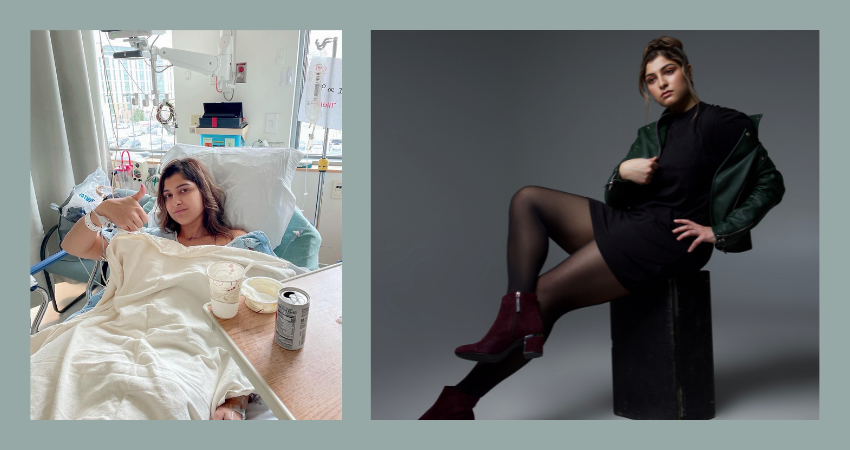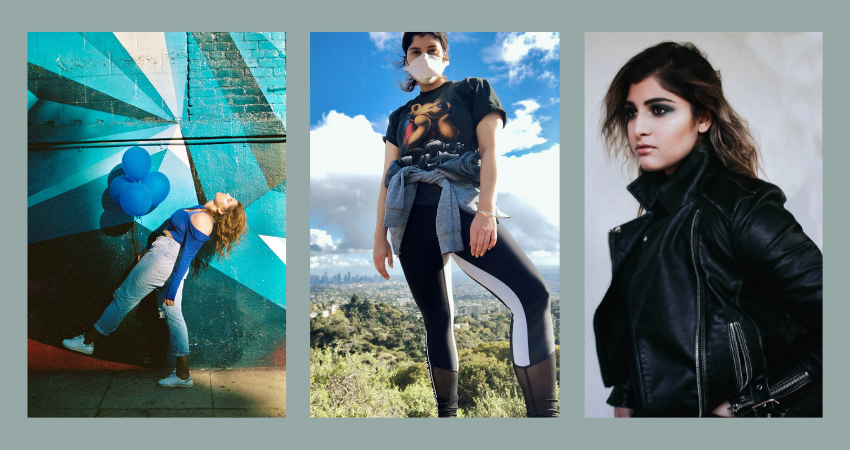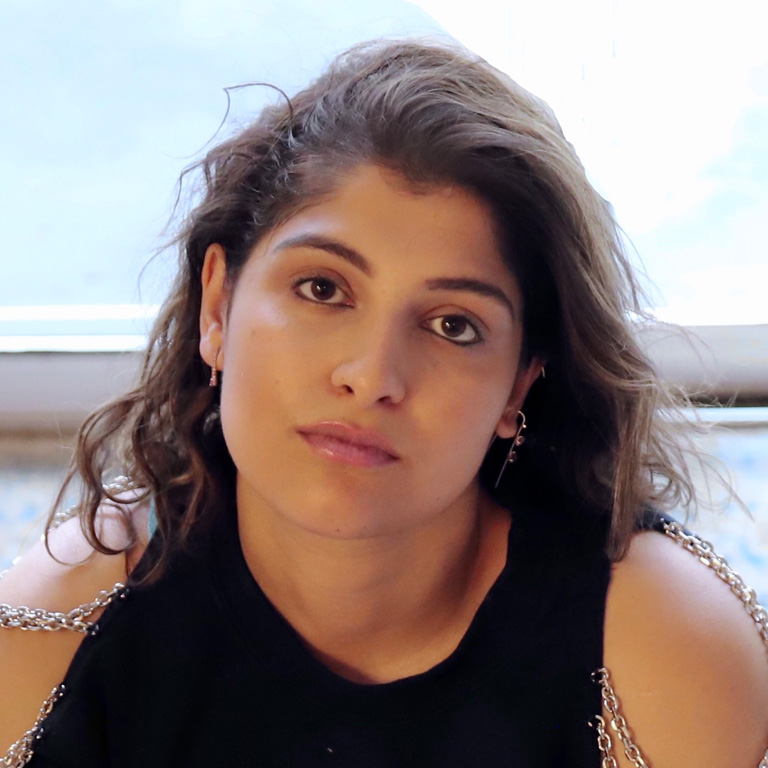Degrees of separation
- 02/13/22

Having breast cancer in your 20s during a pandemic is one of the most grueling regimens known to humankind.
I was 27 years old when I found out I had cancer in November of 2019. I circumstantially went into my diagnosis of invasive breast cancer with little stability, which has progressively worsened through a very destabilizing process and worldwide system in crisis. On top of that, a lot of other stuff has happened/is happening to me. I have a lot on my plate right now. So, for the sake of self-preservation, I’ll keep this pithy and cute in the spirit of Valentine’s Day even though that doesn’t exactly help the misleading narrative that cancer is a box of gratitude wrapped in pink ribbons. In fact, I would feel more positive if I knew I was set with my treatment, had found my new normal, and could deal with the trauma as “the past,” but I’m not, and life still has to move forward and feel hopeful.
A lot of my peers went to grad school — doctors, lawyers, journalists — but breast cancer as a young adult is the grad school you never signed up for: one with super high stakes that makes you feel sick all the time. There are different courses to choose from, various blood tests and scans to ace: lymphedema management physical therapy 101, pelvic floor physical therapy 102, radiation oncology 303, medical tattooing 201, breast surgery 202, speech therapy 206, endocrine therapy 404, and more. It’s very expensive, but you can sometimes get government subsidization. It’s capitalistic, competitive, and incredibly hard work; you feel like a failure if your body can’t tolerate the “best” treatment, and there’s so much research, so many decisions and unknowns that put you in constant transition. It’s highly autonomous, like a 10-year PhD program where you shepherd literally everything. Your doctors are there but barely even know you. They sometimes mix up your case with other dissertations. You occasionally bond with the ancillary mentors in the form of nurses or physical therapists as you would a TA. Your relationships evolve: the doctor you were intimidated by ends up respecting you; the doctor you love leaves for a position at another institution. You take on too many treatments, the way you would credits, and then drop them hoping you don’t die. Oftentimes, you have to juggle jobs and kids and other demands outside of “sick school” which is, of course, simply impossible.

In business school, you might secretly hope to meet your soulmate in your corporate finance class. In cancer school, you hope you’ll meet a hot resident, a cute patient in your support group—this never happens. Ever. I know it does in movies, but those movies weren’t written by cancer patients.
I went into my diagnosis in an … unfulfilled situation … which was pretty much the most dehumanizing foundation for breast cancer treatment. I did some dating during my chemo cycles pre-pandemic. On “good week” in my three-week regimen, I’d throw on a beanie and see a movie with a guy so that I could absorb the energy and feel like I was flexing my dating muscles without having to talk to him. I got 1917 out of that — an extraordinary experience that left me with little to no recollection of who I saw it with (I’m sorry, person, it wasn’t you; it was the chemo drugs + movie). It was exactly where I was “at” at the time: the constant movement of the film — relentless warfare interrupted by a flicker of light, a laugh, a song, a touch — sometimes that’s enough to go on. That’s chemo. Interestingly, I just happened to watch Belfast exactly two years later, and it’s exactly where I’m at right now on hormonal therapy: big decisions, unknown timelines, relocation. It’s chaos, and yet there’s still a banality to everyday life — you’re trying to make an income, celebrate holidays, and shield loved ones from what’s really troubling you.
During March of 2020, Covid happened mid-chemo. I cancelled my birthday celebration and spent it instead with my oncologist. I watched X-Men and realized I was Rogue; I didn’t touch anyone, not even my family, for months.

Then I met a grad student — a real one — who was interning in Los Angeles for the summer while I was virtually dating midway through radiation. I still didn’t have eyelashes, but I had shed some of the steroid weight, and my face had de-puffed enough such that I didn’t look entirely like a mysterious sea creature of Marianas Trench anymore. We virtually dated, then dated six feet apart, then got tested, quarantined, and unmasked, culminating in a few cross-country dates where we played house like Bud Fox and Darien in Wall Street: a relationship of scattered montages. It’s fun to meet someone when you’re both building. You push each other into the next phase. I felt youthful and desirable until ultimately I just started … acting. It became too hard to try and fit back into a world that I’ve been squeezed out of, when I have to be so direct and communicative and out of my comfort zone for everything — socially, professionally, with doctors. We both inexplicably ended up going through losses and hopefully, in time, we’ll look back on this relationship as being a unique kind of shared intimacy. That’s also a thing with breast cancer. Things come up early. It’s like induced vulnerability. Not many people get to experience that much humanity in their lives. We’re in different schools, chasing different degrees. Who knows, maybe one day we’ll reconvene as alumni.
So, this is the other thing no one really tells you about breast cancer school. One of the most brutal things is grieving the experiences you never got to have in your body, in your youth, that were cut short by this disease. I kind of had this idea that I’d be able to recreate some of this. There’s a rebirth element to the body that can feel fresh and exciting, but there’s also quite a sad element to it, because I’m realizing it’s not the same, not just physically but emotionally, because I can’t recreate naivety.
I don’t have the answers. I wish I did. I recently decided to take the stars out of my eyes and focus on the baby step in front of me, which is also a bit isolating, because I’m realizing it’s a hard perspective to share with your coastal-city-“killing it”-energy peer group. I try to tell myself that caginess wins the battle, but vulnerability wins the war. Is it true? I mean, hey, it’s working for Pete Davidson!
Stay connected
Sign up to receive emotional support, medical insight, personal stories, and more, delivered to your inbox weekly.


